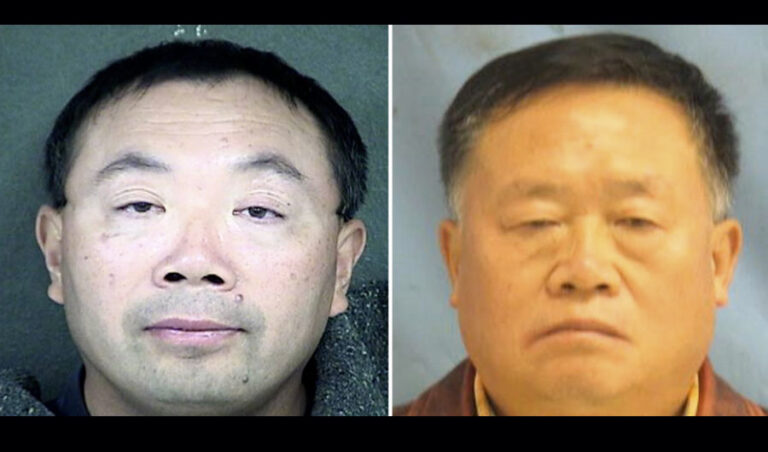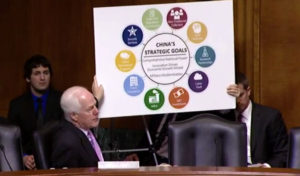(New York Times) The case of the missing corn seeds first broke in May 2011 when a manager at a DuPont research farm in east-central Iowa noticed a man on his knees, digging up the field.
When confronted, the man, Mo Hailong, who was with his colleague Wang Lei, appeared flushed.
Mr. Mo told the manager that he worked for the University of Iowa and was traveling to a conference nearby.
When the manager paused to answered his cellphone, the two men sped off in a car, racing through a ditch to get away, federal authorities said.
What ensued was about a year of F.B.I. surveillance of Mr. Mo and his associates, all but one of whom worked for the Beijing Dabeinong Technology Group or its subsidiary Kings Nower Seed.
The result was the arrest of Mr. Mo last December and the indictment of five other Chinese citizens on charges of stealing trade secrets in what the authorities and agriculture experts have called an unusual and brazen scheme to undercut expensive, time-consuming research.
China has long been implicated in economic espionage efforts involving aviation technology, paint formulas and financial data.
Chinese knockoffs of fashion accessories have long held a place in the mainstream.
But the case of Mr. Mo, and a separate one in Kansas last year suggest that the agriculture sector is becoming a greater target, something that industry analysts fear could hurt the competitive advantage of farmers and big agriculture alike.
“Agriculture is an emerging trend that we’re seeing,” said Robert Anderson Jr., assistant director of counterintelligence at the F.B.I., adding that the trend has developed internationally in the last two years. . . . (read the rest)
Wanted posters issued in seed corn espionage case
DOJ Press Releases:
Chinese National Arrested for Conspiring to Steal Trade Secrets (December 12, 2013)
DES MOINES, IA—United States Attorney Nicholas A. Klinefeldt announced the arrest of Mo Hailong, also known as Robert Mo, for conspiracy to steal trade secrets.
The criminal complaint alleges that from on or about September 2011 to on or about October 2012, Mo Hailong and other individuals conspired to steal the trade secrets of several U.S. based seed manufacturing companies and transport those trade secrets to China for the benefit of their China-based seed company.
Mo Hailong is a Chinese national who became a Lawful Permanent Resident (LPR) in the United States pursuant to an H-1B visa.
Mo Hailong is employed as the director of International Business of the Beijing Dabeinong Technology Group Company, which is part of DBN Group.
DBN Group is believed to be a Chinese conglomerate with a corn seed subsidiary company, Kings Nower Seed.
During the course of the conspiracy, Mo Hailong and others are alleged to have stolen valuable inbred corn seed from production fields in Iowa and Illinois.
This “inbred” or “parent” line of seed constitutes valuable intellectual property of a seed producer.
After stealing the inbred corn seed, the conspirators attempted to covertly transfer the inbred corn seed to China.
The investigation was initiated when Dupont Pioneer security staff detected suspicious activity and alerted the Federal Bureau of Investigation (FBI).
Dupont Pioneer, Monsanto, and their staff have been fully cooperative throughout the investigation, which is being led by the FBI.
In accordance with the Iowa Rules of Professional Conduct, the public is reminded that a criminal complaint constitutes facts supporting probable cause and that the defendant is presumed innocent until and unless proven guilty.
———————-
Two Agricultural Scientists from China Charged with Stealing Trade Secrets (December 12, 2013)
KANSAS CITY, KS—Two agricultural scientists from China have been charged with trying to steal samples of a variety of seeds from a biopharmaceutical company’s research facility in Kansas, U.S. Attorney Barry Grissom said today.
Weiqiang Zhang, 47, Manhattan, Kansas, and Wengui Yan, 63, Stuttgart, Arkansas, are charged with one count of conspiracy to steal trade secrets.
The victim in the case—identified in court records as Company A—has invested approximately $75 million in patented technology used to create a variety of seeds containing recombinant proteins.
The company has an extensive intellectual property portfolio of more than 100 issued and pending patents and exclusive licenses to issued patents.
Zhang and Yan are charged in a criminal complaint filed in U.S. District Court in Kansas City, Kansas.
An affidavit in support of the complaint alleges that on August 7, 2013, agents of U.S. Customs and Border Protection found stolen seeds in the luggage of a group of visitors from China preparing to board a plane to return home.
While in the United States, the group had visited various agricultural facilities and universities in the Midwest, as well as the Dale Bumpers National Rice Research Center in Stuggart, Arkansas.
According to the complaint:
- Zhang and Yan, both natives of the People’s Republic of China living lawfully in the United States, arranged for the Chinese delegation to visit the United States in 2013. Previously, the two had traveled to China at the same time in 2012 to visit a Crops Research Institute. Some of the people they met in China were members of the Chinese delegation that visited the United States in 2013.
- Zhang, worked as an agricultural seed breeder for Company A since 2008.
- Stolen seeds were delivered to members of the Chinese delegation during the delegation’s visit to the United States July 16 through August 7, 2013.
- Yan, who worked for the U.S. Department of Agriculture as a rice geneticist at the Dale Bumpers National Rice Research Center, picked up the Chinese delegation from a motel in Stuggart, Arkansas, on July 22, 2013, and took them to the center.
- Seeds similar to what were found in the delegation’s possession as they left the United States in August 2013, were also found in Zhang’s residence on December 11, 2013.
If convicted, Zhang and Yan face a maximum penalty of 10 years in federal prison and a fine up to $250,000. The Little Rock Field Office of the Federal Bureau of Investigation, the Kansas City Field Office of the Federal Bureau of Investigation, and U.S. Customs and Border Protection investigated. Assistant U.S. Attorney Scott Rask is prosecuting with assistance from the U.S. Attorney’s Office in the Eastern District of Arkansas.
In all cases, defendants are presumed innocent until and unless proven guilty. The indictments merely contain allegations of criminal conduct.












